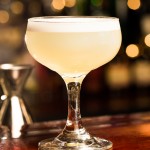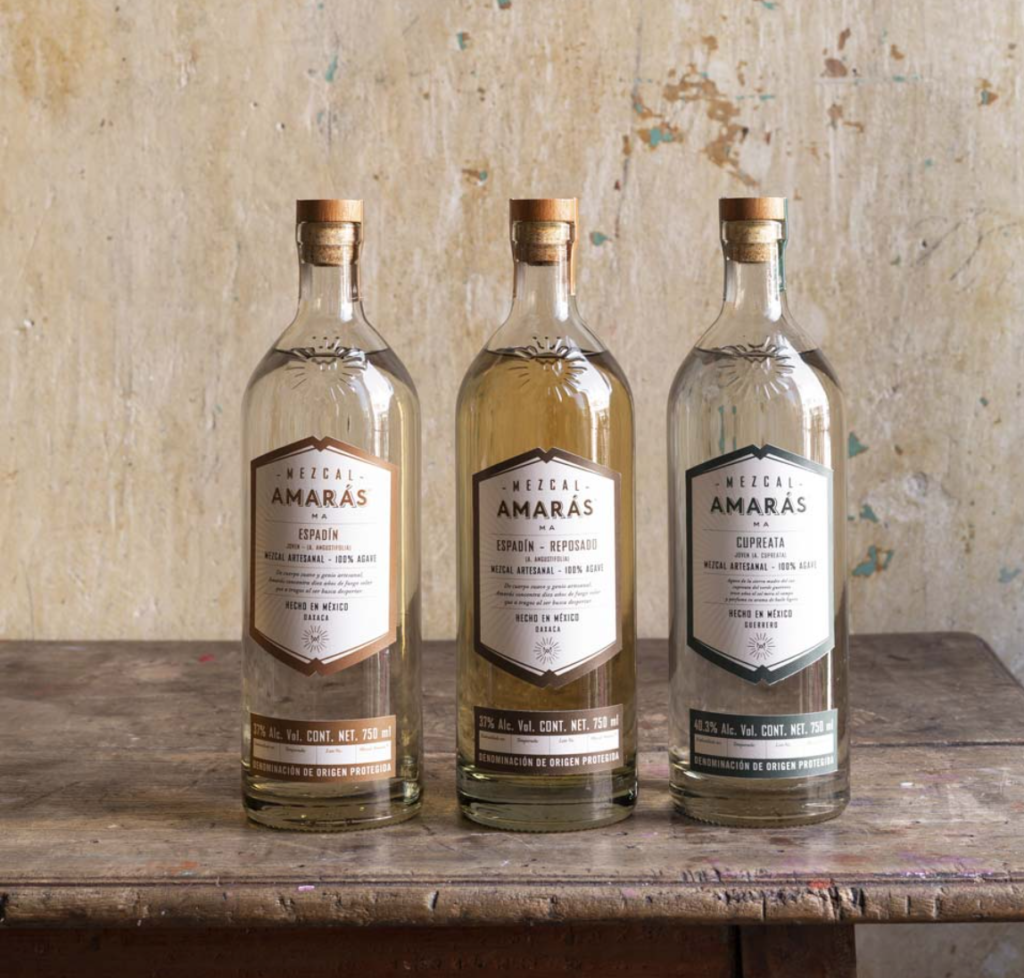
So we’ve all heard of the famous Mexican plant called agave from which tequila is distilled. This sacred plant is what mezcal, a distilled spirit, is derived from, as well. Originating in Mexico and a derivative of the same plant is pretty much where their similarities between mezcal and tequila end. Tequila is produced in specific regions of Mexico and must be only made from agave tequilana or blue agave. However, there are different varieties or species of agave, just as there are different varieties of grapes that produce wine. (I tend to make wine references for everything, btw). Mezcal, on the other hand, can be produced from more than 30 different species of agave.
Which leads me to Amarás Mezcal, which was founded in 2010 by a group of friends, who after visiting many regions in Mexico, fell in love with mezcal. As it happens, the way Amarás produces mezcal is very similar to biodynamic wine production. By focusing on a holistic approach “from seed to sip,” the producers at Amarás aspire to have a more balanced relationship with the ecosystem. And I’m convinced this is one of the reasons why their mezcal is so superb.
So just how is their mezcal produced from agave? First, it’s important to note, it can take upwards of 7 to 12 years for the agave plant to mature enough to be harvested. Before being distilled in clay vats for an ancestral distillation, or copper vats for artisanal distillation, it’s cooked inside ground pits that are lined with lava rocks and filled with wood and charcoal. This gives mezcal it’s signature smoky character. Mezcal is often used in cocktails, especially in the U.S., but I personally like sipping it neat. I had the opportunity to taste three of their mezcal varieties, Amarás Espadín, Amarás Reposado, and Amarás Cupreata.
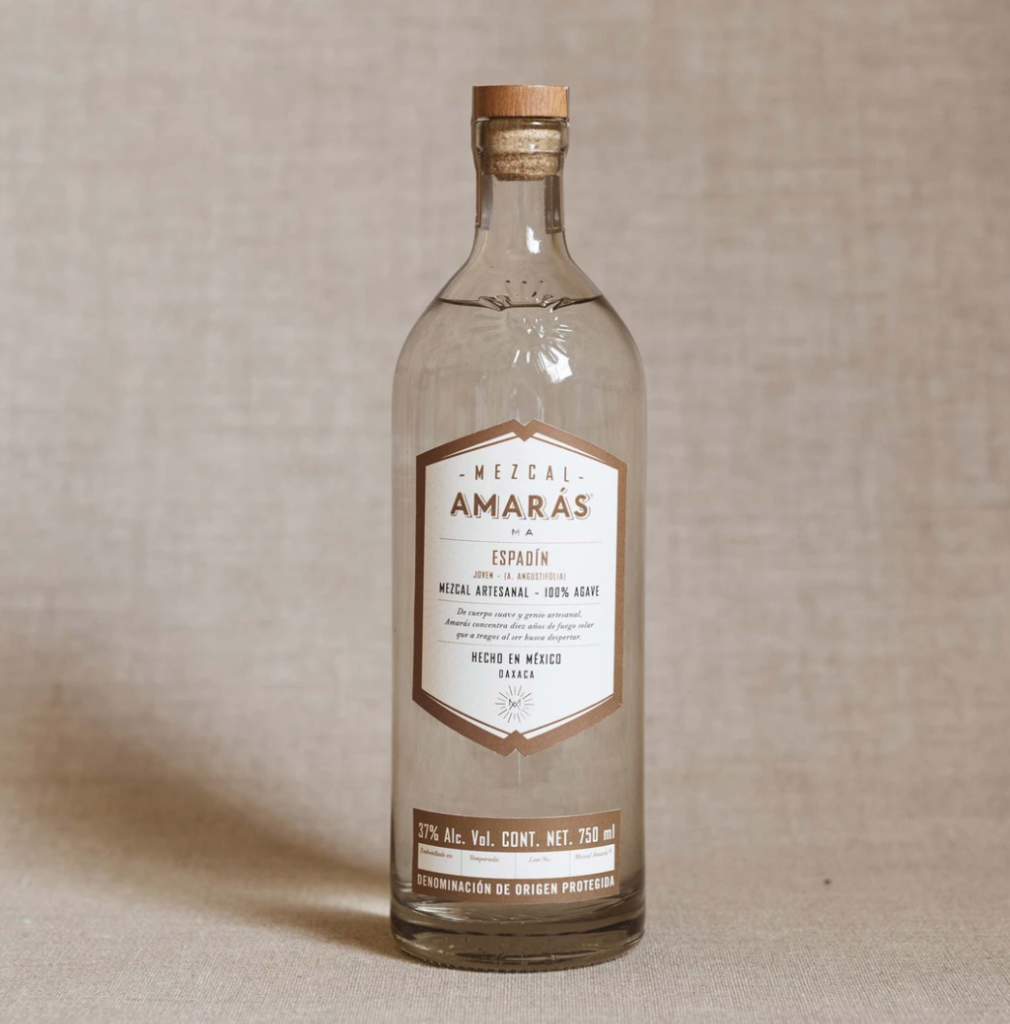
Produced from Espadín agave in the region of San Juan Del Río, Oaxaca, this mezcal’s agave takes 10 years to fully mature. Additionally, its roasting takes place in conical stone ovens over 5 days with pine wood vats used for its fermentation. Its smoky flavor grips you and leaves you wanting more.
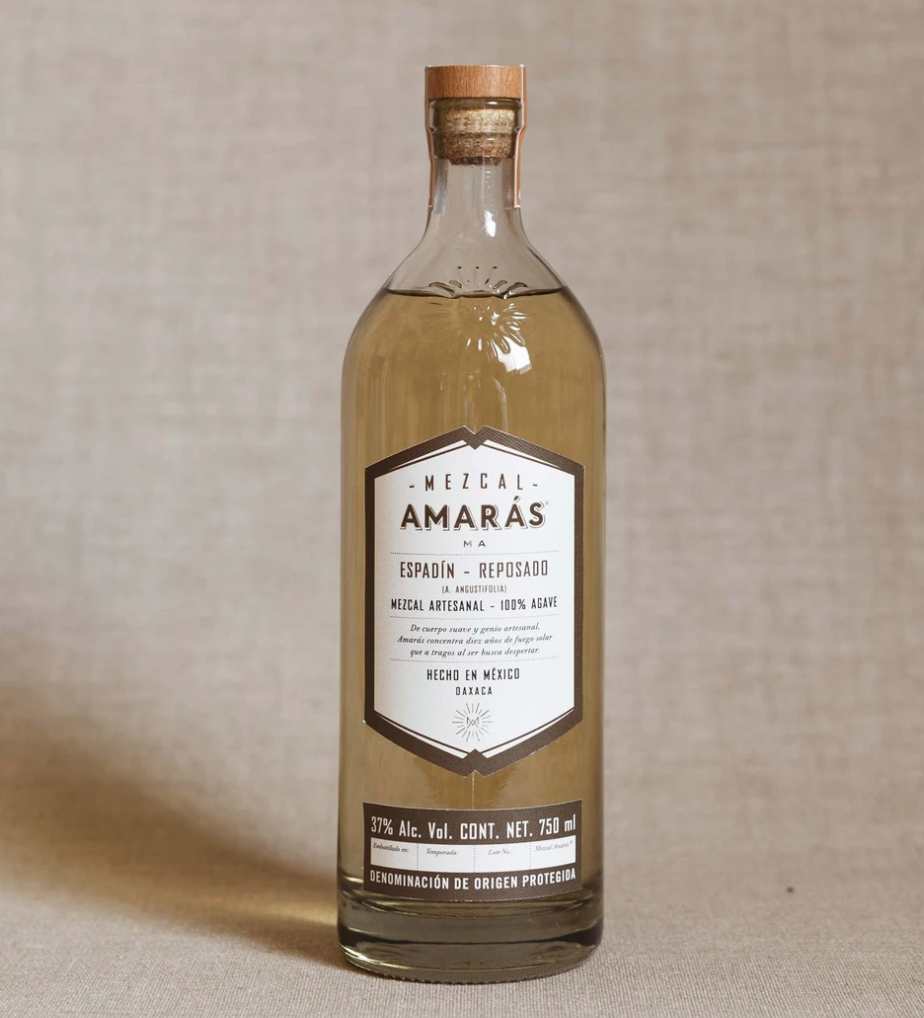
Aged longer than the above, this mezcal is also produced from Espadín agave, however, the reposado is aged in different types of oak barrels, giving it a smoother finish, warmer characteristics, and an amber hue.
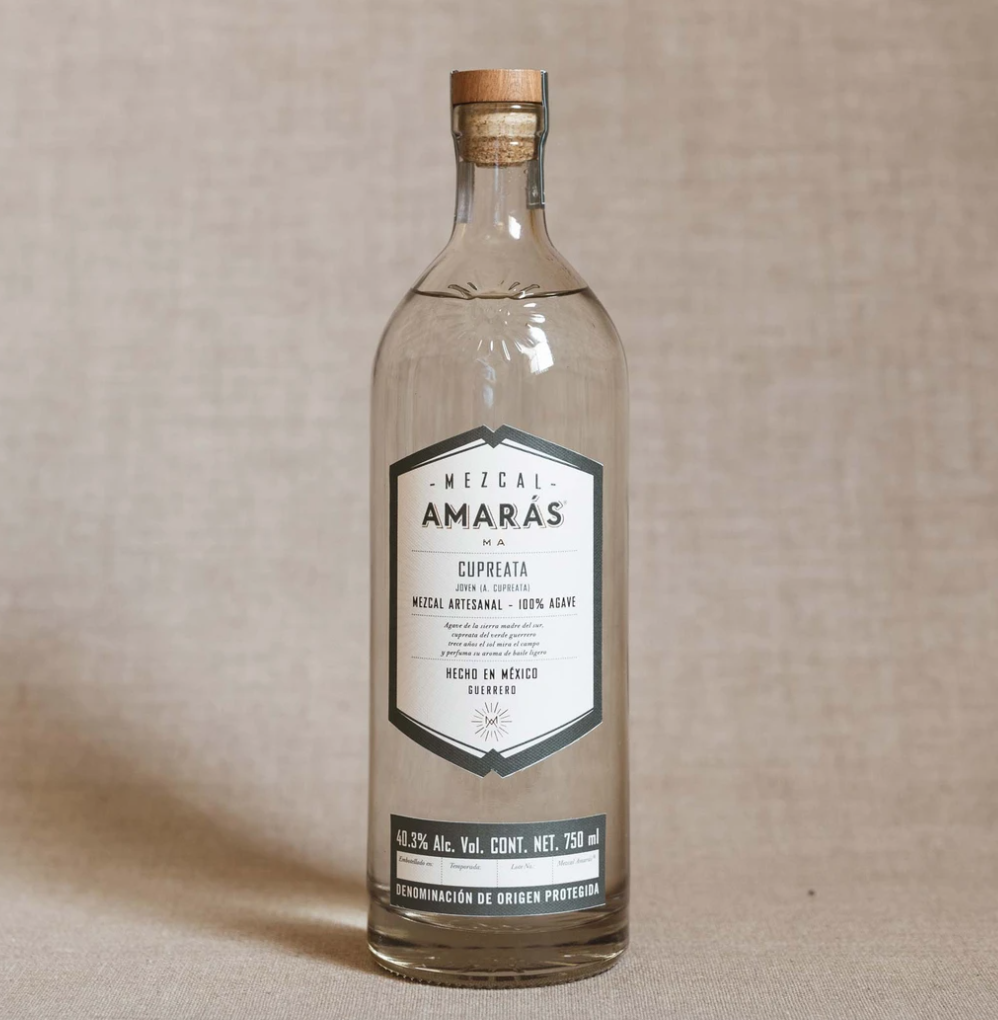
Giving it a richer, earthy characteristic, this mezcal is produced using the Cupreata agave species. It tastes smoky, yet herbaceous and vibrant. This expression was also just awarded “Double Gold, Best of Show” in the San Francisco World Spirits Competition.




